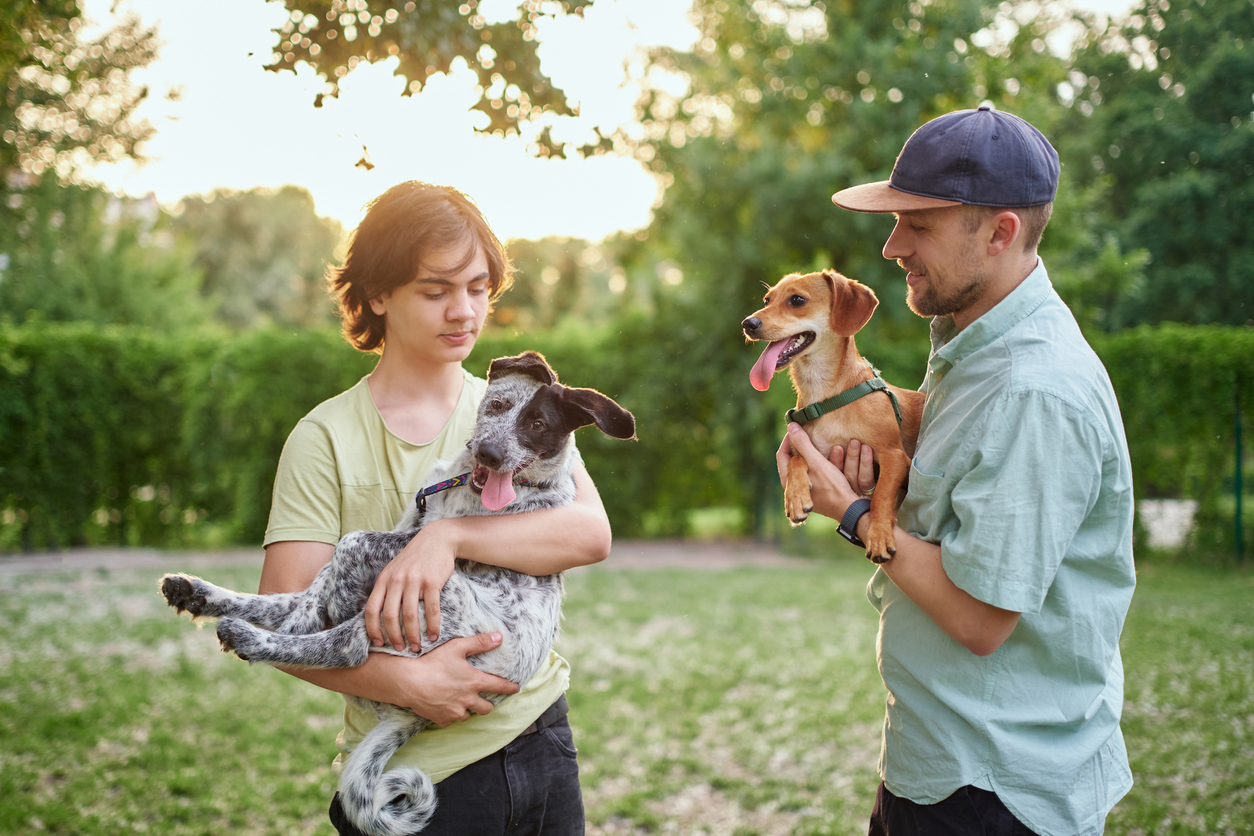Just like humans, pets need social interaction to thrive. Whether you have a playful puppy, a curious kitten, or a more mature pet, socialisation plays a key role in shaping their behavior, confidence, and overall wellbeing. At PawPaw Pet Insurance, we know how important a happy, well-adjusted pet is to your family – and it all starts with socialisation.
What Is Pet Socialisation?
Socialisation is the process of gently introducing your pet to a variety of people, animals, environments, and experiences. This helps them feel safe and comfortable in new situations, reducing fear, anxiety, and aggressive behavior. It’s best to begin at an early age, but even older pets can benefit from proper socialisation with time and patience.
Why Is Socialisation So Important?
1. Promotes Good Behavior
Socialised pets are less likely to act out in fear or aggression. They’re more likely to remain calm around other animals, children, and unfamiliar people.
2. Reduces Anxiety
A well-socialised pet is less likely to feel overwhelmed by new sights, sounds, or experiences – making vet visits, grooming sessions, and car rides a lot easier.
3. Improves Safety
Pets who are comfortable and confident in various situations are less likely to react unpredictably. This can prevent accidents or bites in high-stress situations.
4. Builds Confidence
Exposing pets to a range of experiences helps them become more adaptable and less fearful overall – especially during their formative months.
When to Start Socialising Your Pet
The ideal time to begin socialising your puppy or kitten is between 3 to 14 weeks of age. During this window, they’re naturally more open to new experiences. However, if you’ve adopted an older pet, it’s never too late. With a gentle approach and consistency, adult pets can also learn to socialise effectively.
How to Socialise Your Pet – The Right Way
1. Start Slowly
Introduce your pet to new experiences in a calm, controlled environment. Avoid overwhelming them with too much at once.
2. Expose Them to Different People
Let your pet meet people of different ages, sizes, and ethnicities. Encourage calm interactions and reward your pet with treats and praise.
3. Introduce Other Animals
Use safe, positive encounters with other vaccinated pets. Dog parks, puppy classes, or calm playdates are a great place to start.
4. Explore New Environments
Take your pet on walks in different neighborhoods, let them hear traffic, experience the beach, or sniff around at a pet-friendly café.
5. Use Positive Reinforcement
Always reward calm, curious, or brave behavior with treats, toys, or affection. This builds positive associations with new experiences.
6. Watch Their Body Language
Pay attention to signs of stress like tail tucking, hiding, or growling. If your pet seems overwhelmed, give them space and try again another time.
Common Mistakes to Avoid
-
Forcing interactions – Don’t push your pet into situations they’re not ready for.
-
Skipping early exposure – The longer you wait, the harder it can become to socialise some pets.
-
Neglecting continued exposure – Socialisation isn’t a one-time thing. Keep exposing your pet to new experiences throughout their life.
Final Thoughts
Socialising your pet is one of the most valuable things you can do to set them up for a happy, confident life. Not only does it help build a better bond between you and your furry friend, but it also helps them safely enjoy the world around them.
At PawPaw Pet Insurance, we’re here to support you every step of the way. From unexpected vet visits to lifestyle benefits, our coverage is designed with your pet’s total wellbeing in mind.
Because when your pet’s protected, you can both enjoy more pawsitive adventures together!
👉 Ready to protect your pet with affordable, reliable cover?
Get a quote today and give your best friend the care they deserve.Yours in Paws,
The PawPaw Team.

